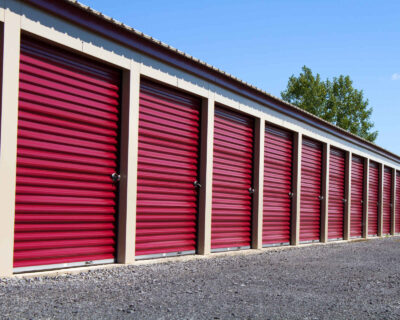How Much Do Movers Cost? Break Down of Cross Country Moving Expenses
If you’re considering moving, one of the first things you’ll need to figure out is your budget. So, how much do movers cost? There are a lot of factors that go into calculating movers’ rates, so it can be tricky to estimate what your final bill will be. In this post, we’ll break down the different elements that influence movers’ rates and offer some tips for keeping costs down. By understanding the factors involved, you’ll be able to budget more accurately.

The cost of hiring professionals depends on several factors, including which long-distance moving services you decide to get and how far you’re going to move. Choosing when you are going to move can also affect the final price. Still, every mover is different, so any relocation and auto transport company, such as Flat Price Auto Transport and Moving, should give you a free quote about estimated expenses once you provide them with all the necessary information.
Current Trends in US Moving Patterns
In 2023, the landscape of moving in the United States reflected notable trends and shifts. Approximately 28% of Americans reported moving within the last year, a slight decrease from previous years. The most popular states for inbound moves were Florida, Texas, and Tennessee, with Florida witnessing an impressive 42.8% increase in inbound moves compared to outbound relocations.
In contrast, California faced significant outflow, with nearly 100 people leaving for every 37 that moved in. This trend suggests a changing dynamic in migration patterns, influenced by factors such as cost of living, job opportunities, and lifestyle preferences. In 2023, 64% of movers reported that a recent major life event prompted their relocation, with the most common triggers being job changes (21%).
How Much Do Movers Cost – Common Price Ranges
Moving is a big undertaking, and it can be expensive. You have to account for the cost of renting a relocation truck or hiring a moving company, as well as the price of packing materials. But how much do movers cost, anyway? Let’s take a look at some common price ranges so you can budget for your upcoming move.
Long-Distance Moves
For moves that are longer than 100 miles, you’ll need to factor in the cost of fuel as well as the hourly rate for the movers. The average long-distance move will cost between $2,200 to $6,800. However, if you’re moving to another country, you could end up paying closer to $10,000. Apart from the distance, you also need to be concerned about the relocation volume. The price will often depend on the size of your move, or more precisely, the number of rooms in your current place.
Relocating Specialty Items
Some items require special care when moving, such as pianos and antique furniture. If you have any specialty items that need to be moved, you can expect to pay an additional fee. Services you might need in this case is custom crating or maybe auto transport in an enclosed trailer. Relocating a piano typically costs between a few hundred dollars to a couple of thousands to move, and antiques could potentially cost you even more.

What Are Some Factors That Affect the Overall Relocation Expenses?
How much do long distance movers cost? The answer isn’t always simple, as there are a number of factors that can affect your overall relocation expenses. We’ll take a look at four of the most important factors to keep in mind when budgeting for your move.
- The distance of your move – one of the most important factors affecting the cost of your move is the distance you’re traveling. Local moves are typically much less expensive than long-distance or international moves. This is because local movers don’t have to spend as much on fuel, and they can complete the move in a single day. Long-distance and international moves require more planning and coordination, which can increase the overall cost.
- The size of your household – another factor that will affect the cost of your move is the size of your household. If you have to move a lot of furniture and belongings, you’ll need to rent a larger truck or storage unit, which will increase your relocation expenses. Conversely, if you’re downsizing or moving into a smaller home, you may be able to get away with renting a smaller truck or storage unit, which will save you money.
- The cost of living in your new location – the cost of living in your new location can also affect the overall cost of your move. If you’re relocating to an area with a higher cost of living, such as New York City or San Francisco, you can expect your expenses to be higher than if you were relocating to a smaller town or rural area. This is because everything from housing and transportation costs to food and entertainment costs more in big cities.
- The time of year you move – the date of your move can also affect how much you’ll spend on your relocation. Relocating during the summer is typically more expensive compared to other times of the year because demand is higher. This means that movers are more likely to be booked up, and rates are generally higher. If possible, try to plan your move for off-peak times and move during winter or fall to save money.
Moving Services
Whether you are moving from New York to Los Angeles or from San Francisco to Chicago, we can help you.
Read morePacking Services
Our moving teams are trained to pack your belongings in the most efficient manner possible.
Read moreStorage Service
Knowing what kind of surprises cross country move may hold, we offer 30 day free storage for belongings at the origin state.
Read moreAre There Some Additional Fees You Should Know About
Now that you are wondering, “how much do professional movers cost?” you are probably asking yourself if there are some additional fees to consider. Many people don’t realize that there are a lot of hidden costs that can add up quickly. In this blog post, we’ll break down some of the most common additional moving costs and fees that you may not have considered so that you can be prepared financially for your big move.
Packing Materials
Boxes, tape, bubble wrap, packing peanuts – it all adds up quickly. And unless you have friends or family who can hook you up with some free boxes, you’re going to have to shell out some cash for high-quality packing materials.
Storage Fees
Unless you’re lucky enough to have friends or family who can house some of your stuff while you’re in transition, you’re probably going to need to rent a storage unit. On average, you can expect to pay anywhere from $50 to $200 per month for a small storage unit.
Cleaning Fees
Most landlords require that you leave the place spotless when you move out – and if you don’t, they will charge you a hefty cleaning fee (usually equal to one month’s rent). To avoid being charged, be sure to deep clean the apartment before you move out – and don’t forget those pesky blinds!
Utility Transfer/Connection Fees
When you move into a new home, you’ll need to set up your utilities (water, gas, electricity, etc.). In most cases, there will be a fee associated with transferring/connecting your service. These fees can range from $25-$100 depending on the utility company and the type of service that is set up.
New Furniture
If you’re moving into a completely empty place, chances are you’re going to need to buy some new furniture (unless you plan on sleeping on an air mattress and eating TV dinners at your coffee table). While it’s tempting to splurge on all-new furniture for your new place, try to resist the urge and stick to only buying the essentials – you can always upgrade later down the road when your relocation budget allows for it.
Change of Address Fee
When you move, one of the first things you need to do is change your address with the Post Office so that your mail gets forwarded to your new place. And while it’s only $1-$3 to do so online, many people forget about this small but necessary expense until they receive their first bill at their new address several weeks after they’ve moved in!
Decorating Expenses
Once everything is unpacked after relocation and in its rightful place, it’s time to start decorating! But before you go crazy, remember that decorating an entire apartment or house can get pretty expensive – very quickly. So try to stick to a budget and only buy what you really need (and what fits within said budget). Otherwise, those decorating expenses could end up putting quite a dent in your wallet!
How Can You Cut Cross-Country Moving Costs?
If you’re facing a long-distance move, there are a few ways you can cut costs and save money. Here are a few relocation tips:
- Get multiple quotes – once you know you’re going to move, start reaching out to different moving companies for quotes. Be sure to get at least three different quotes so you can compare prices. Moving companies will usually give you an estimate based on the size of your home and the distance of the move.
- Downsize your belongings – the more stuff you have, the more it’s going to cost to move it. Before you start packing, go through your things and decide what you really need and what you can live without. Anything that you don’t absolutely need can be donated, sold, or left behind. The less stuff you have, the less it will cost to move it.
- Move during the off-season – as we already mentioned, the summer is typically the busiest time for movers, which means rates will be higher than usual. If possible, try to schedule your move for the fall or winter when demand is lower and rates are cheaper. Just be sure to plan ahead, so you’re not caught in bad weather!
Should You Tip Cross-Country Movers When All Is Done?
So, you’re finally embarking on that long-awaited cross-country move. Congratulations! Even if you’re hiring a professional car shipping company and movers to help with the heavy lifting, there’s still a lot to do before you can sit back and relax in your new home. One of the big questions on your mind is probably whether or not you should tip your cross-country movers. Let’s take a look at some factors to consider when making your decision.
Are Tipping Practices Standardized?
Unfortunately, there is no standard answer to the question of whether or not you should tip your movers. In some cases, companies have strict policies against accepting tips, while others are more relaxed about the matter. As a general rule of thumb, it’s always best to assume that your chosen moving company does not permit tipping. That way, you won’t put your movers in an awkward position if they’re not expecting it.
Of course, that doesn’t mean you can’t show your appreciation for a job well done with a kind word or two. A simple “thank you” goes a long way, and your movers will certainly appreciate it. You could also offer them refreshments throughout the day to help keep their energy up. Water, soda, and snacks are always welcome! Just be sure not to offer anything alcoholic, as most companies have strict policies against drinking on the job.
What About Extra Services?
In some cases, cross-country movers may go above and beyond what is expected of them—and when that happens, a small tip is definitely in order. For example, if they go out of their way to disassemble and reassemble complex items like beds or pianos and make sure all your belongings are packed securely and moved safely at your new home, a small tip would be greatly appropriate.

Hiring a Long-Distance Moving Company Will Be Worth the Price
Although the cost of hiring a professional mover may seem high at first, in the end, it will be worth the price. Not only will you avoid costly mistakes and headaches, but you will also have peace of mind knowing that your belongings are in good hands. When it comes to choosing a long-distance moving company and relocation services, be sure to do your research and compare prices. By taking these steps, you can ensure that your move goes as smoothly as possible while also saving some cash in the process.
Ready to make your long-distance move hassle-free? Contact Flat Price Auto Transport and Moving today for a personalized quote and experience the ease of professional relocation services. Your stress-free move starts here!









